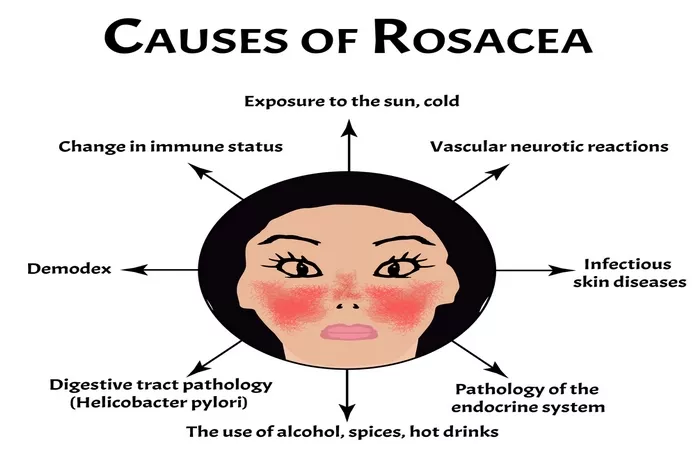Common Causes of Rosacea

The exact cause of rosacea has yet to be fully understood. However, medical science believes that it can be secondary to a combination of genetic and environmental factors. These include: (3)
- Genetics: There is evidence that rosacea can run in families, suggesting that genetic factors play a role in the development of the condition.
- Abnormalities in the immune system: Some research has suggested that abnormalities in the immune system, such as chronic inflammation, may contribute to the development of rosacea.
- Abnormalities in blood vessels: Some studies have suggested that abnormalities in blood vessels in the face may contribute to the redness and inflammation associated with rosacea.
- Demodex mites: These tiny mites are commonly found on human skin and hair follicles. Some research has suggested that an overgrowth of Demodex mites may contribute to the development of rosacea.
- Triggers: Certain factors can trigger or exacerbate rosacea symptoms, including exposure to sunlight, hot or cold weather, spicy foods, alcohol, stress, and certain medications.
Of note, only some people with rosacea will have the same triggers, and some may not have any identifiable triggers. If you suspect rosacea, consult a healthcare professional (dermatologist) for an accurate diagnosis and appropriate treatment plan.

